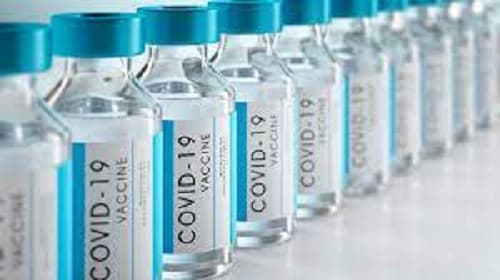El FMI, el Banco Mundial, la OMS y la OMC debaten sobre la aceleración del suministro y el despliegue de vacunas contra la COVID-19

Los jefes del Fondo Monetario Internacional, el Grupo Banco Mundial, la Organización Mundial de la Salud y la OMC se reunieron el 30 de octubre en Roma para debatir sobre las estrategias para acelerar el suministro y el despliegue de vacunas contra la COVID-19, en particular en los países de ingreso bajo y mediano bajo. Los jefes de los cuatro organismos, Sra. Kristalina Georgieva (FMI), Sr. David Malpass (Banco Mundial), Dr. Tedros Adhanom Ghebreyesus (OMS) y Dra. Ngozi Okonjo-Iweala (OMC), cuyo encuentro coincidió con la celebración de la cumbre del G20, hicieron pública una declaración conjunta en nombre del Grupo de Trabajo Multilateral de Líderes.
(de momento sólo en inglés)
Joint statement
«The global rollout of COVID-19 vaccines is severely off track, resulting in a sharp divergence between rich and poor countries. Of the 7 billion vaccine doses administered globally, only 35 million doses, or 0.5%, have been administered in low-income countries. In advanced economies, over 60% of the population is fully vaccinated, with some now receiving booster shots, while less than 2% of the population in low-income countries is fully vaccinated.
The pandemic remains the biggest risk to economic health, and its impact is made worse by unequal access to vaccines, tests, treatments, and PPE. That’s why we need to reach the global targets to vaccinate at least 40% of people in every country by end-2021, and 70% by mid-2022. But we are still behind: some 82 countries, half of which are in Africa, are not on track to meet the 2021 target. Inadequate supply of vaccines is the primary problem for these countries, which are at the back of the vaccine supply queue. Almost 500 million more doses need to be delivered in low-income countries alone before year-end to achieve the 40% target.
To bring an end to the pandemic and support a broad-based recovery, the G20 needs to:
- Accelerate existing dose donations to COVAX, pledge new ones, and provide greater visibility on delivery schedules;
- Execute large swaps of near-term delivery schedules with AVAT, COVAX, and bilateral contracts well in advance of doses expiring (like the recent announcement between Moderna, the African Union, and the U.S. to make doses available to Africa);
- Eliminate export restrictions on vaccines and critical inputs; and
- Agree on regular high-level political stock takes to build collective accountability to end the pandemic.
At the same time, countries must be ready and able to deploy vaccines when they arrive. Data published on the Task Force website shows many examples of low-and lower middle-income countries that are administering doses effectively. We continue to monitor and help address logistical, workforce-related, and other bottlenecks on the ground and prepare countries for vaccine deployment.
Trade has an essential role in ensuring the scale up of vaccine production and access to critical health related goods and inputs. We continue to work with countries to address finance, trade, and regulatory barriers that pose constraints to the supply and equitable delivery of vaccines. With the WTO’s 12th Ministerial Conference approaching at the end of November, we strongly urge its members to ensure that the multilateral trading system fully supports efforts to address current and future pandemics.
Urgent action, especially by the G20, is needed now. A failure to act could mean COVID-19 will have a prolonged impact into the medium-term, which could reduce global GDP by a cumulative $5.3 trillion over the next five years and lead to five million additional lives lost.»















1 thought on “El FMI, el Banco Mundial, la OMS y la OMC debaten sobre la aceleración del suministro y el despliegue de vacunas contra la COVID-19”